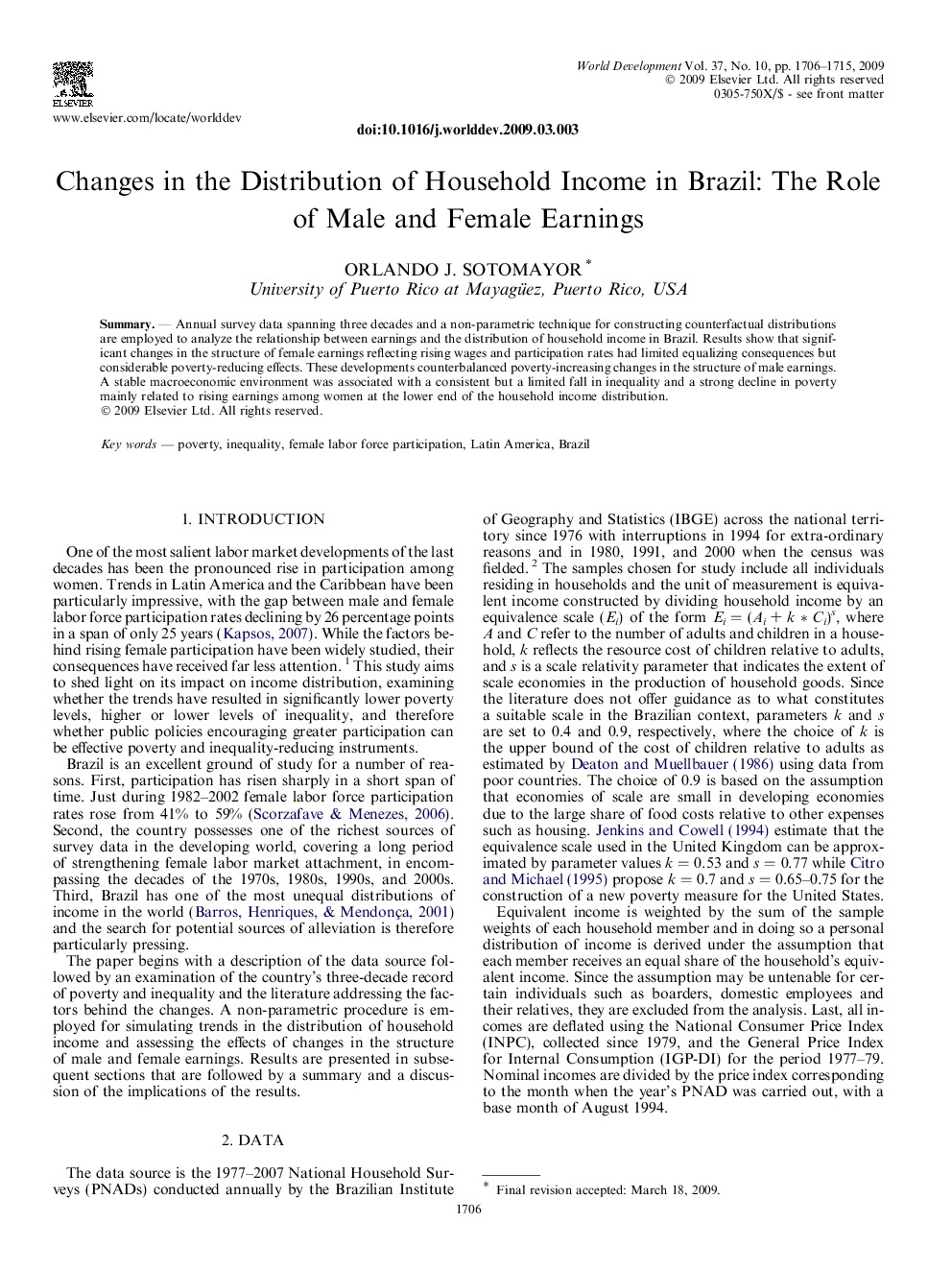| Article ID | Journal | Published Year | Pages | File Type |
|---|---|---|---|---|
| 989347 | World Development | 2009 | 10 Pages |
SummaryAnnual survey data spanning three decades and a non-parametric technique for constructing counterfactual distributions are employed to analyze the relationship between earnings and the distribution of household income in Brazil. Results show that significant changes in the structure of female earnings reflecting rising wages and participation rates had limited equalizing consequences but considerable poverty-reducing effects. These developments counterbalanced poverty-increasing changes in the structure of male earnings. A stable macroeconomic environment was associated with a consistent but a limited fall in inequality and a strong decline in poverty mainly related to rising earnings among women at the lower end of the household income distribution.
